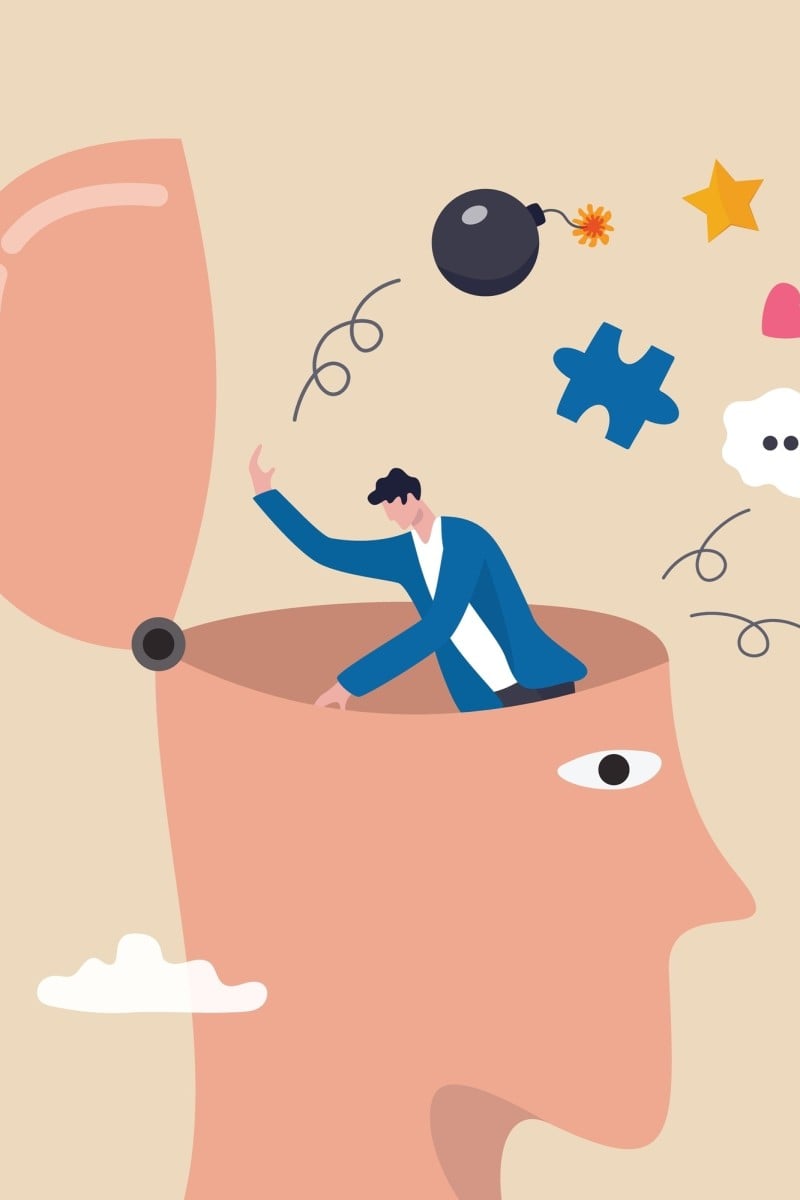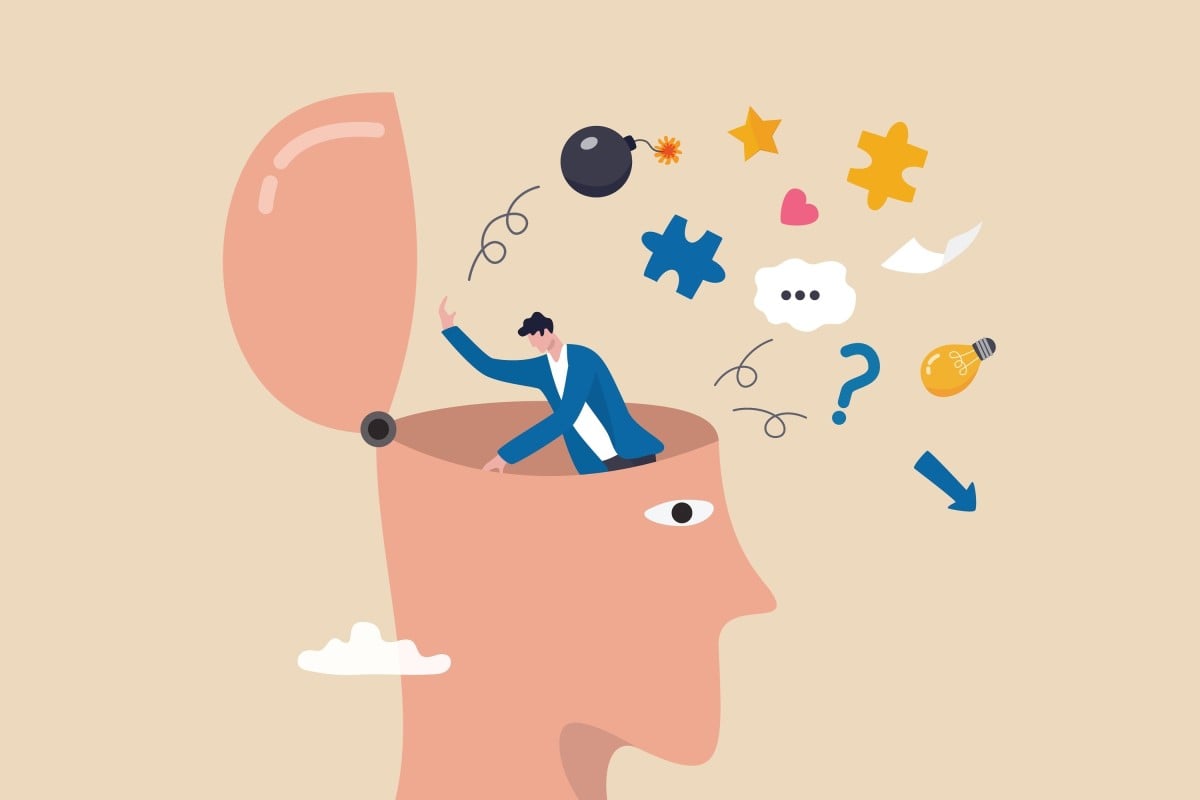
That gut feeling is a message from your brain but might be inaccurate
Psychologist Andrew Stock shares the science behind short cuts – intuitive thoughts and instinctive feelings that our brains create to guide us
 Can you trust your gut feeling? Photo: Shutterstock
Can you trust your gut feeling? Photo: ShutterstockEvery week, Talking Points gives you a worksheet to practise your reading comprehension with exercises about the story we’ve written.
Have you ever met someone and felt an instant connection? How about immediate dislike? Some of us might regard those feelings as fated or destined, but psychologist Andrew Stock offers a more scientific explanation.
This “gut feeling”, he said, is because of cognitive efficiency: when your brain uses the least amount of energy to perform a task well.
Stock, the president of the Psychotherapy Society of Hong Kong and a founding partner at Therapy Partners, explained one cognitive efficiency process where our brains learn to save energy and time by making quick decisions and judgments, often without us even realising it.
Scientists explain how a hot ash cloud turned brain tissue into glass
Why does the brain create short cuts?
The brain constantly juggles enormous amounts of information that it uses to make instant decisions. To handle such a massive workload, it has trained itself to be as productive as possible.
Instead of analysing every detail in a situation, our minds use short cuts called heuristics to help us focus on the most important details, Stock explained. These short cuts help us quickly respond to new situations based on our previous experience.
“For example, when I see a dog barking loudly, I instantly step back, assuming it could be dangerous. Figuring out if it’s friendly or not potentially comes later,” he said.
Short cuts in social situations
We often make snap judgments about people based on a limited amount of information – like how they may look, speak or act in the first few seconds of meeting them.
When we notice one positive aspect about someone, we often assume that there are other positive things about that person and the things they are associated with.
Stock said this is why, when a public figure with a good reputation endorses a product or brand, their followers often transfer those favourable feelings onto the brand.
How can Hong Kong teens stress less and what apps are available?
Be cautious about a gut feeling
Stock warned, “These judgments are often unreliable because they are based on incomplete information and can be influenced by our own biases and past experiences. They can also lead to unfair assumptions.”
This can cause us to treat others differently, and we might not even realise it. For example, we might be friendlier to someone who dresses the same way we do or avoid someone who seems different.
“First impressions are simply a starting point, not the complete picture when meeting someone new,” the psychologist said. “When you get a gut feeling about a stranger, pause and consider the actual facts you have about them versus the assumptions you’re making before forming a judgment.”
Avoiding false judgments
Stock suggested talking to friends or family, for example, and seeing if their viewpoints about a person are similar. We can also practise empathy and put ourselves in someone else’s shoes. Think about what the other person might be feeling, their situation or the reasons they might have for behaving the way they do.
He also recommended making an effort to engage with people from different backgrounds to learn more about them before forming an opinion.
“While it’s great that our brain wants to save energy and time, sometimes [it’s best] ... to spend more time observing and interacting with someone in different situations,” the psychologist explained.
Help! I constantly worry about what others think of me
In these interactions, ask open-ended questions, encourage the other person to share more about themselves, listen actively and pay attention to things that do not match your first impression.
It is also helpful to reflect on times when your gut feeling was wrong. This helps you realise that your instincts are not always accurate.
“Remember, your brain’s short cuts are there to help, but they’re not always right. Taking a little extra time to get to know someone can help you see them more clearly and can lead to better friendships, less conflict and a more open-minded view of the world,” Stock said.
To test your understanding of this story, download our printable worksheet or answer the questions in the quiz below.
